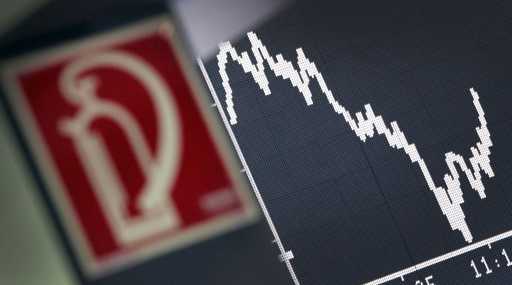Junk bonds boom as coronavirus lures investors to risk
11 September, 2020

When the monetary seas become stormy, investors usually have a tendency to seek out "safe haven" assets -- low-risk, low-yielding financial vessels -- in which to put their money.
But, as in the areas of society, the coronavirus pandemic has skewed long-held means of thinking.
Yield-hungry investors are venturing into ever riskier assets in their seek out rapidly diminishing returns, their appetites whetted by the vast safety nets central banks have put under their national economies.
Demand for so-called "junk" or non-investment grade bonds is booming.
By mid-August, a complete $274 billion in junk bonds have been issued in the U.S., exceeding the full total for your of 2019, according to data published by Bloomberg.
Europe, too, where in fact the junk bond market is much less developed than on the far side of the Atlantic, saw an "acceleration" in the issuance of non-investment grade debt at the end of first half of the year, according to ratings agency Fitch.
A "junk" bond may be the rather derogatory sounding term used where there is an increased odds of the issuer defaulting on their loan repayment.
In substitution for the increased threat of buying them, the borrower promises the lending company a higher interest on their money.
But with some central banks now even agreeing to get junk-grade bonds within a barrage of measures to keep credit flowing within their financial systems, investors are experiencing fewer qualms about taking on such risk.
As part of its pandemic-fighting strategy, the U.S. Federal Reserve is supporting companies that have seen their credit scores downgraded recently, such as Ford and Occidental Petroleum, by buying their bonds directly.
The European Central Bank is not quite at that time yet, but has agreed to accept them as collateral when banks borrow from it.
Over the summertime, aluminium can maker Ball Corporation raised eyebrows by securing the lowest-ever borrowing costs for a U.S. junk-rated company, paying an twelve-monthly coupon of 2.875 percent on a 10-year bond.
In comparison, pharmaceuticals giant Johnson & Johnson, which enjoys a top-notch triple-A rating, issued a 10-year bond with a coupon of just one 1.3 percent.
With terms such as "zombies" and "fallen angels" appearing increasingly frequently in the financial press, readers could possibly be forgiven for feeling as if they have wandered onto a dystopian fiction during these coronavirus-ridden days.
"Fallen angel" may be the term used for a company which has seen its normally solid -- or investment-grade -- credit history slashed to junk because its business has been brought to a standstill by the virus lockdowns.
French hotel chain Accor is one particular example and was relegated to junk status by S&P in August.
For asset managers, the main element question is just how much risk to continue dealing with while the economical cost of the pandemic continues to be being counted.
"Companies which were already in somewhat of difficulty before are a lot more so now," said Alain Krief, head of fixed income at Rothschild Asset Management.
"That's our job, identifying them rather than necessarily investing by any means," he said, pointing to ailing companies in sectors such as for example car rentals or auto parts supply.
The huge concern is that so-called "zombie" companies could make the downturn still worse.
These are businesses whose interest costs exceed their gross annual earnings and have been kept alive by years of cheap borrowing costs, not least because of state and central bank rescue programs.
According to rating agency S&P Global, Europe's speculative-grade corporate default rate is expected to a lot more than treble to 8.5 percent by the center of next year, and in a far more pessimistic scenario it might leap so far as 11.5 percent.
"Expansive monetary and fiscal support could lessen defaults over the near term, but, with basic revenues flagging, the proportion of 'CCC'/'C' issuers has risen sharply, raising default risk," S&P wrote in a recently available study.
Marina Cohen, head of high yield Europe at Amundi Asset Management, said the risk of corporate defaults would merely be delayed, however, not allayed completely.
"It's the specific risk of this crisis that has led the authorities to do something so quickly. But rather than seeing an instantaneous wave of bankruptcies, we will most likely now visit a lag in corporate failures," she said.
"There is liquidity in the short term, but companies that don't possess good capital structures will logically default" later.
The upsurge in the amounts of "living dead" companies can be setting off alarm bells in a few financial circles.
"If one company from every six in Germany becomes a 'zombie' as a result of rescue funds and delayed insolvency applications, then that may have serious consequences on the productivity of the (German) economy," said Deutsche Bank leader Christan Sewing the other day.
Source: japantoday.com
